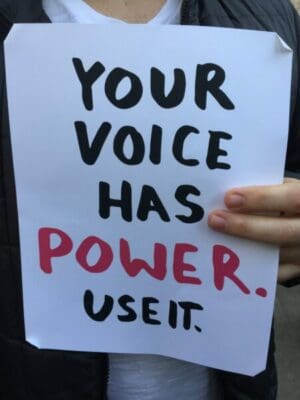Watch Your Tongue
Talking skills are arguably the most important soft skills for any leader, manager, or wannabee highflyer. Speaking and listening enable us to communicate with others, explain our needs and goals, and express our thoughts and feelings. All other soft skills build on that foundation, but with our minds focused on our jobs, sometimes we forget.
This article starts by considering how the business world is less formal now, but effective talking is nonetheless all-important. From there we explore the basics of effective talking, to groups or one to one. We look at using your voice power, and the key speaking skills. This leads to exploring fluency, vocabulary, grammar and pronunciation, and issues around voice inflection and pronunciation bias. We address the importance of small talk, sensitive conversations and helping people feel safe. And we end with some suggested reading.
Let’s Keep This Informal
The business world is less formal these days. Cultural changes and instant communication tech have seen to that. Business people like to feel comfortable and relaxed in meetings and presentations. And they want to work and do business with others who feel the same. So, when you’re talking to a group, making presentations or giving speeches, you want to sound relaxed and authentic.
It’s important to make a good impression and communicate politely. But you also want to bond with your audience. Striking a natural and informal note, even speaking formally, makes you come across as friendly and approachable. It shows you’re interested in what the others have to say and want a working relationship.
Informal speaking is what we do in our more relaxed working conversations, with close colleagues. It helps form emotional connections and build trust. But sometimes in these situations, you will need to slip back into formal mode, and show leadership. Think about how other people will see you. Be self-aware, learn to judge what’s working and reflect on how to improve.
Are You Using Your Voice Power Effectively?

The American voice coach Gilda Bonnano has some clear pointers. Her main message is, our voice is a key component of nonverbal communication and conveys meaning and emotion. Gilda says you need to unleash your voice power, to deliver your message effectively and connect to your audience. Here are some specifics:
- Pauses: Take pauses before important words, at the end of sentences or anywhere you’d like a break. This gives the audience time to absorb your information, and you get a chance to breathe. Also, you’re less likely to use pause words like ‘um,’ which sound like you’re stumbling. Think of pauses like punctuation in written communication.
- Be aware of your voice tone: Does your voice have energy? Do you sound timid, nervous, tired or bored? Your voice needs to match the words you’re saying. That’s because the audience takes in your non-verbal language first, rather than your words.
- Voice inflection: This allows you to emphasise keywords and emotions, and helps convey your exact meaning to the audience. Altering your inflection on one word changes the entire meaning of a simple sentence like “I know the answer.” Go on, try it yourself!
Let’s Get Back to the Basics
Talking skills enable us to connect with others, be assertive and persuasive, and achieve our goals through personal communication. But first, you need the building blocks in place.
In Britain, children learn about speech and language in primary school. This includes listening and responding to teachers and classmates and using spoken language to express feelings, give explanations and describe. They learn to distinguish between formal and informal speech, listen and acknowledge different points of view, and hold the listener’s attention. But by the time we finish education and get to the workplace, the pressures to succeed can be distracting. We can lose sight of the importance of fundamentals like talking skills.
What Do Effective Talking Skills Involve?

Whether you’re talking to one person or a group, you need to:
- Know yourself: all good communication starts from a place of self-awareness.
- Understand your audience.
- Be direct, specific and clear, and sure of what you want to achieve.
- Pay attention to their nonverbal communication.
- Listen as much as you talk.
- Be positive and respectful.
That’s Easy For You to Say
It’s easy to say ‘Be positive and respectful.’ But when we feel ourselves getting wound up or anxious, we can lose focus. Get yourself back in the room. Remember why you’re having this conversation, and what you want from it.
You know the objectives you’ve decided on before you start. However, the other person or people are reacting, aim to be assertive and persuasive, but not aggressive. Remember the essentials of communication – attention, content and purpose. People talk about these a lot with regard to social media, but they’re equally important factors in talking.
Get it Right Next Time
If you feel an important conversation didn’t go well as it could, don’t worry, you can always improve your talking skills. Practice definitely makes better:
- Listen, and think before you speak.
- Know what you want to say. Be brief and to the point
- Be mindful of who you’re talking to, but be friendly and treat everyone equally.
- Watch your body language.
- Look the other person in the eye. Be aware of their body language, and notice how they are responding.
- Ask relevant questions. It’s okay to clarify things!
- When they respond, write things down. Take notes, as exact as possible. The precise words matter. Don’t paraphrase.
What are the Key Factors Affecting How Your Speech Comes Across?

There are four key speaking skills you need to address, to talk effectively:
- Fluency: How comfortable and confident are you in speaking? Do the words flow? Here’s a tip. If you’re talking for an extended period, make a clear connection between each point you’re making. ‘This brings us on to…’ That helps listeners follow what you’re saying, and not get lost.
- Vocabulary: If you don’t have the words to say what you want, you won’t say it! The more engaging you make what you’re saying, the stronger your impact will be.
- Grammar: Despite our love of text speak, it’s still all about making an impression. Grammar does matter, and the fewer mistakes you make, the better you come across. You can be idiomatic and use matey language, once you know the other person. But listen to them first and see if it’s appropriate.
- Pronunciation: The ‘subskills’ of pronunciation include word and sentence stress, inflection, rhythm and use of individual words. People often get judged at work, not for their ability, but how they pronounce words. Voice tone is also part of pronunciation. If you’re feeling a particular emotion, people will hear. Be self-aware. If you think your feelings are affecting how you’re putting your message across, stop. Take some deep breaths and ground yourself. Then go on.
Pronunciation Bias: The Final Frontier
Talking about judging people for their pronunciation, we all have communication filters, acquired through our different life experiences. These filters impact how we listen and take in what the other person is saying. We judge people by their accents. Hence in Britain, people in business often modulate their foreign or regional pronunciation, to assimilate and blend in. But not always!
We also judge people’s quirky speech mannerisms, like rising inflections at the end of sentences, AKA Australian Question Intonation, or AQI. Too much time watching Neighbours! In a 2014 Pearson management survey, over half the poll said if Brits used AQI it would hinder their career prospects. And 85% said it was a ‘clear indicator of insecurity.’ Watch it, sport…
More seriously, leaders and managers are increasingly concerned about interrupting bias, as part of encouraging diversity and inclusivity. Alongside racism, gender bias is one of the biggest focus areas. Generally, men’s voices are flatter than women’s, which have more natural inflection. This can lead to men putting down female colleagues as emotional when they’re being assertive. As workplaces become more diverse, this challenging behaviour is being taken to task. So change is coming.
Corporate businesses are also leading the way in employing people with disabilities, and neurodiverse individuals. Some of these people will have issues with talking skills, requiring leaders, managers and colleagues to show sensitivity.
Making Small Talk, Sensitive Conversations and Staying Safe

It’s important for leaders and managers to feel comfortable in two contrasting areas we haven’t talked about yet. Showing empathy and emotional intelligence in small talk and sensitive conversations will contribute to the business culture. This is true whether you’re running an SME or a corporate. Talking to people and listening to them is a key part of being an effective leader.
Smarter Small Talk
As normality returns, business people are getting out again. They’re visiting other offices and clients in other places, attending trade shows and networking, even going to office parties. It all involves meeting people you don’t know well. Here’s how to make a good impression:
- Pretend you’re talking to an old friend: Approach small talk with colleagues, whoever they are in the business as if you’re chatting to good mates. It’s down to a simple change in your perception.
- Assume the best in people: The faster you open up, the sooner you can skip the ‘what do you do?’ bit.
- Remember, no one’s good with names: It doesn’t matter if you need a quick reminder now and again. Would you hold it against someone if they forgot yours momentarily?
- Stay focused on your conversation partner: If the chat runs dry, bear in mind most people like to talk about themselves. Don’t you?
- Make connections with their stories and pay compliments: Be interested in their anecdotes and share stuff that relates to what they’re saying.
- Read up on current affairs: Be informed, but don’t get controversial for the sake of it! Let other people air their views, and listen to what they’re saying, even if you disagree. Hold back. You still want to work together, or do business!
Handling Sensitive Conversations
Sometimes in a work conversation, the priority is showing concern and support. It’s important to do this by demonstrating that you genuinely care and are truly hearing what they have to say. This means applying the same talking and listening skills we’ve been talking about. The difference is, this time the focus is on the other person rather than your objectives. Here are some tips:
- Pay close attention to what the other person is telling you: Actively listening is crucial to being a helpful listener. When you reply, it can be helpful to repeat some of what they told you, using the same language. This attention to detail shows you care.
- Maintain comfortable eye contact: Don’t avoid it, but do avoid staring. It’s important to meet their gaze. It shows you’re interested and focused on them – in every sense!
- Keep an open body position: Don’t cross your arms. It may appear defensive, even though you’re not feeling like that.
- Don’t stand up, even if they are: Being on the same level as someone seems less threatening and can make them feel more comfortable. This is especially important if they are feeling tense or nervous about having a personal conversation.
- Sit alongside them, not opposite: This allows the chat to feel friendly and non-confrontational, not like an interview.
- Don’t fidget: In a sensitive conversation, you may want to fidget, but it can be distracting to the other person. They might also think you’re uncomfortable, nervous, or worse, bored.
Offering a Safe Space
By being a good listener, you are showing your support. This may really help someone with mental health issues or other personal problems. It can also help people feel safe if they’re upset about being on the receiving end of bias and microaggressions.
Sadly as the business world becomes more diverse, bias and microaggressions are an increasing workplace problem. Whether it’s about gender, race, age, LGBTQ, disability, faith or whatever, some people are insensitive about many things. If someone comes to you as their leader or manager for support, the first step is to talk it through.
And Finally: Some Suggested Reading: a Handy Checklist and Don’t Forget to Practise!

There are plenty of books you can read about talking skills. Here are two for starters. Dale Carnegie’s “How to Win Friends and Influence People” is one of the best-selling books of all time. Alan Palmer’s excellent book “Talk Lean: Shorter Meetings. Quicker Results. Better Relations” is also worth a read. It’s a guide to saying difficult things and asking difficult questions, positively, effectively and comfortably for all involved.
As a quick mental checklist, remember the 7 ‘C’s. Talking, like other forms of communication, needs to be:
- Clear.
- Concise.
- Concrete, as in detailed, factual and focused.
- Correct.
- Coherent.
- Complete: Is there a call to action? Is all the information there?
- Courteous.
If you want to get better at this, the best thing to do is practise. Are you making an important presentation? Run through it in front of a mirror or video yourself. Study your body language and take steps to control it. Use or limit gestures, and maintain a smile or friendly manner. But not forced.
Try out your presentations in front of friends and family, and get their feedback. After you give the presentation at work, ask a friendly colleague or line manager what they thought. Let them know you’re interested in building your skills. Ask them to compare your performance next time, and suggest opportunities to develop further. Good luck. And keep talking!




